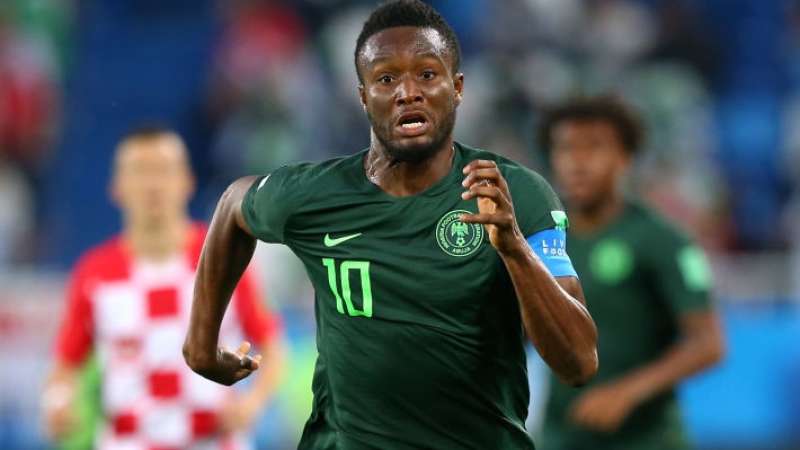Mikel: African Footballers Make Money For Cousins, In-Laws To Enjoy
Former Super Eagles and Chelsea midfield maestro, John Mikel Obi, has lamented that African footballers do not enjoy the wealth they labour for, as their extended families and relatives who overwhelm them with financial burdens are the most beneficiaries of their hard-earned money. Mikel said the pressure was on the footballers on the African continent […]

Mikel John Obi
Former Super Eagles and Chelsea midfield maestro, John Mikel Obi, has lamented that African footballers do not enjoy the wealth they labour for, as their extended families and relatives who overwhelm them with financial burdens are the most beneficiaries of their hard-earned money.
Mikel said the pressure was on the footballers on the African continent to shoulder the responsibilities of both their nuclear and extended families, adding that it has been a silent cry they all endure.
The 36-year-old former Nigerian skipper said sometimes they hardly cater for themselves after they settle the financial problems of their relatives, stating that, “When you make money, it’s not yours.”
Mikel revealed this while appearing on the latest episode of Vibes with 5 podcast with former Manchester United and England legend, Rio Ferdiannd, as he added that the majority of them as African footballers do not talk about this challenge.
He said, “We come from Africa, and this is something that I don’t think we speak a lot about. When you make money, it’s not your money. You have all these relatives, cousins, and others asking for money.
“Then your sisters get married to some guy who just wants to get married into John Obi Mikel’s family because then “my life is sorted”. You send money to your sister; the money goes to him, and he does whatever he does with it. This is something nobody knows about.
“So you get your salary, and you put some aside for this person; put this aside for that person; put this aside for mom and dad. Before you know it, where is it? You get nothing.”
Mikel also decried the trending problematic issue of Africans who give birth to many children without the economic and financial muscles to nurture them, thus becoming the responsibilities of the African athletes.
He said, “They keep having so many kids, and you look at it and ask the question, “You have this many kids; who is going to look after them?” Then you realise it’s you. They look out for you to look after the kids, the husband, and the husband’s family. And it becomes really and absolutely crazy. For them, you owe them that; that is the culture. I was talking to Osimhen the other day, and he said the same thing.”
He said he was in the same position until he resolved to end it about five years ago, on the advice of his agent.
“So sometimes you have to be strong and say enough is enough. I don’t care. For me, that was five years ago; I say no more. Because I’ve been doing this since I started playing football,” he said.
“The reaction is that you become the bad guy. They stop answering your phone calls. They don’t call you to ask about you; they only call to ask for money.
“My agent told me, ‘Mikel, you can’t be doing this. You’re killing yourself, and you’re killing them. Because all you do is give them, and they get so comfortable that they expect you to do that for the rest of your life. And I came to that point five years ago, where I stopped.”
“They will give you this thing, whereby if you don’t do it, they say, “We’re going to the press.” What? After all that I’ve done for you guys?”
